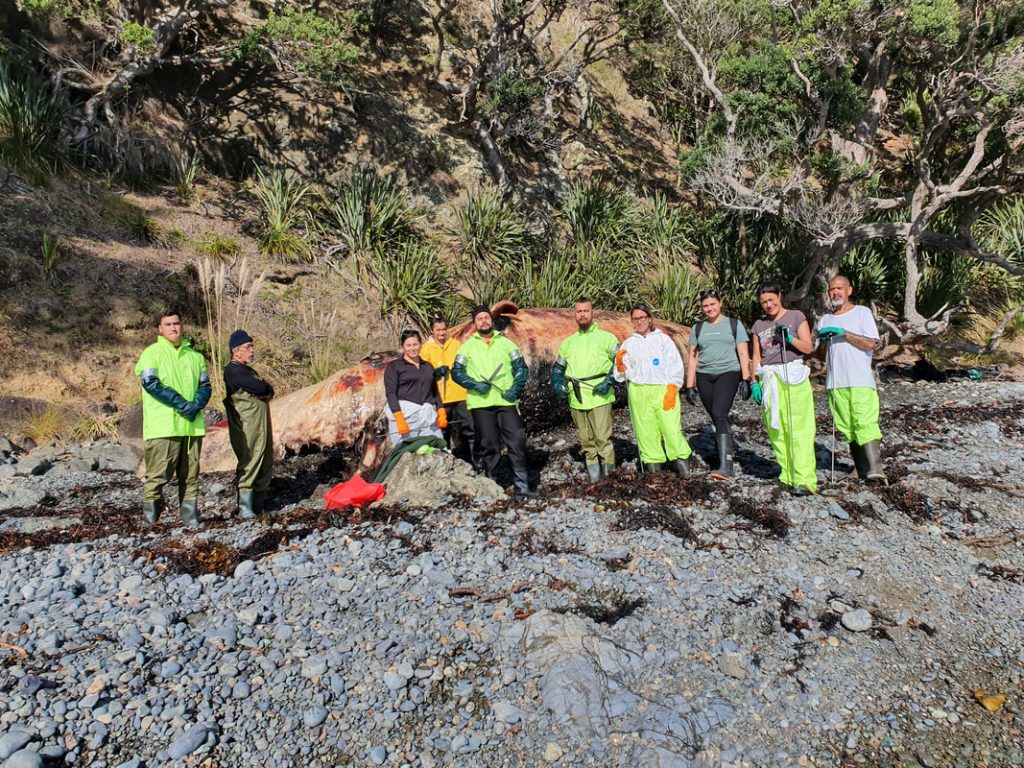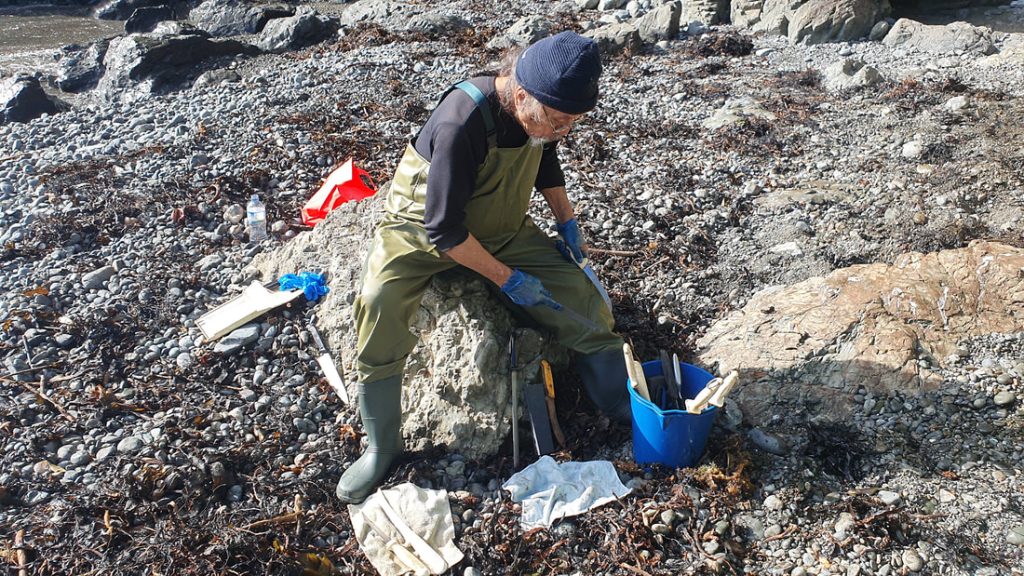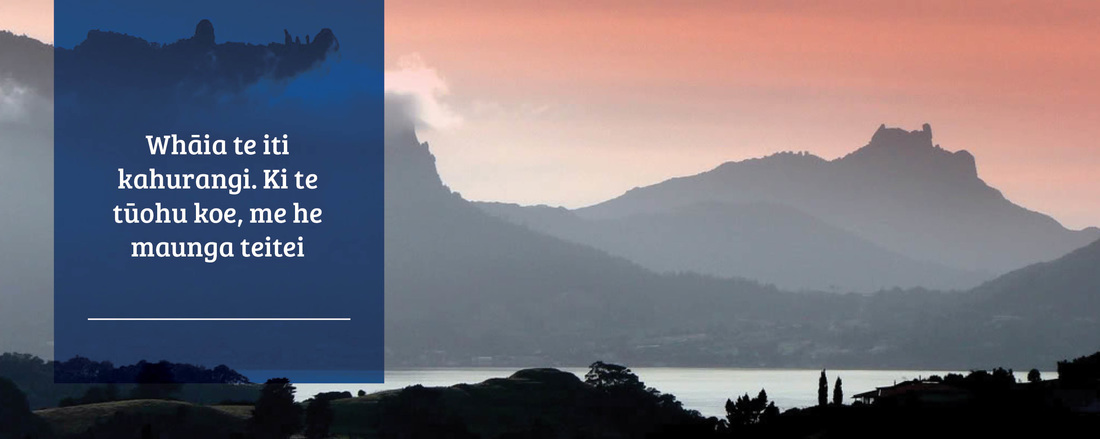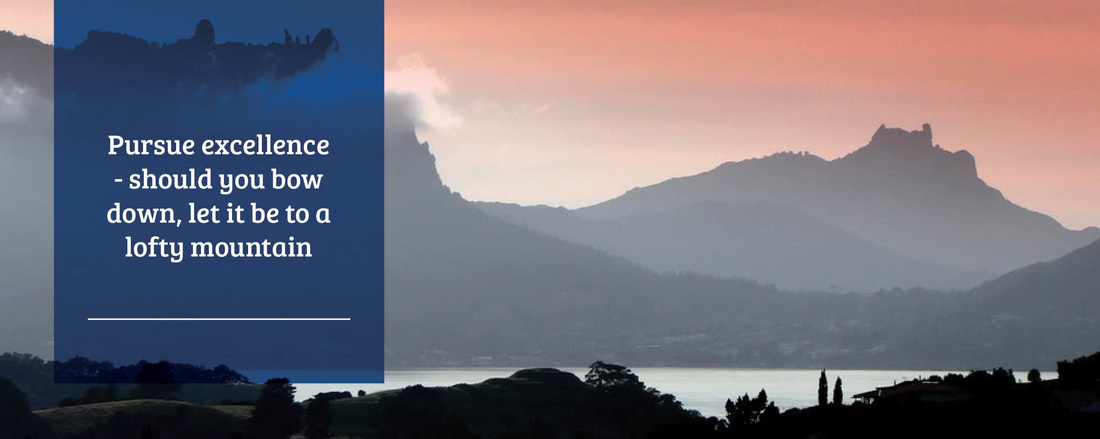
Te Kaurinui Parata laughs when he explains “The name Te Kowhiti is for COVID.”
“We were told during the last week of Alert Level 4 lockdown, that a Tohora had stranded on a remote beach just around from Ngahau Bay in Whangaruru. Due to all the COVID lockdowns, we have not been able to come down until now.”
Ngātiwai tohunga Hori Parata says “The mahi we do is more than just about the jaw, teeth and bones of this and other whales we have worked on, it is much more than that.”
“It is about the maintenance and the protection mātauranga Māori and taonga tuku iho, that is what it is about.”

“My cutters have been Te Kaurinui Parata, Blake Te Kata and Poai Niha. Jaycee Tipene-Thomas and Sylvia Wano are often in there on the hooks when needed, but their main roles are medics- health and safety as well as supporting with logistics and communications”.
Jaycee supports from a technical background with her degree and training in environmental science, she often plays a crucial role of liaising between Te Papa Atawhai and tangata whenua, said “Working for Te Papa Atawhai in the RMA and marine space between 8-5 while being on call for this mahi is rewarding. It’s so important, I’ve learnt so much from Papa Hori, he gives me the courage to carry on my path of merging the two worlds for the benefit of our people, our taonga species and our whenua overall”
“For me, I enjoy sharing my knowledge and experiences with others, building capacity within our people is huge and succession planning is the future”.
Jaycee often leads in sample collection that gets sent away to be analysed for genetic, health and research purposes so there is a lot more that goes on during the process then what you see on the beach.
“What we’re dealing with are mammals, large marine mammals that are prone to the same social illnesses as humans such as staphylococcus, salmonellosis and even botulism, so transmission is a risk and although rare, as we don’t know yet what each whale is carrying until sample results come back (which can take some time), so health and safety is paramount”.
Health and Safety is clearly a priority for Hori, with his record of no cuts or injuries from over 500 whale stranding’s proving the importance he places on safety. On this day, the team gather after karakia to go through all their key protocols before any cuts are made.
Sylvia Wano, who is in her final year of her nursing degree stresses the importance of health and safety and says “Today we are looking after the team who are cutting and pulling to make sure they are doing their mahi really safe and to provide any first aid if needed.”
“We also tend to them if they are thirsty because once they are in their gear they can’t touch anything, the cant eat or drink, go toilet or wipe their face, so that’s what we are here for today.”
I had never done this type of mahi before and I wanted to know more so I went along the next day and Papa Hori had me cutting open a window and then all of a sudden I was in the puku of the tohora.”
“So this has been a journey for me, and I love the traditional knowledge that goes way back.”
“But for me, the matauranga brought out our whakawhanaungatanga, which has seen my people come together and be closer to one another.”
“I found my calling, I am still on my journey, but this is what I love doing best.”
The conditions and weather on the day were perfect for the difficult mahi the team faced. The taonga, Te Kowhiti, had been lying at this location for over 5 weeks, so to try to describe the smell is difficult, to say it is unique is accurate as there is nothing to compare, to say the smell was stink would be an understatement, it was tino haunga!!
With their experience and the guidance of Uncle Hori, the team were quick on the knives on a beautiful winter’s day to get the mahi tahi done. Each person of the team knew their roles and what they had to do with precision.
Sylvia says “What I love about this mahi is going to different places, meeting new people and sharing our knowledge and experiences with everyone. It’s awesome to be with Papa Hori and to teach other people the mahi of flensing like what our ancestors used to do.”
“I will always come back and help Papa and our team because I just love this mahi and what we do.”


